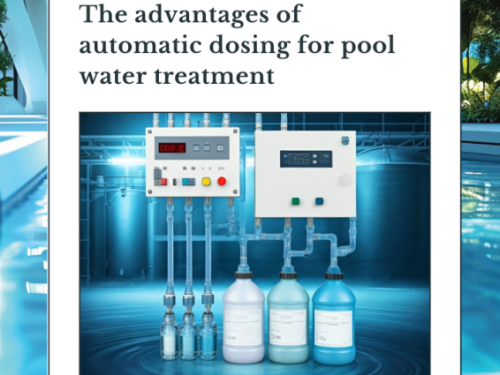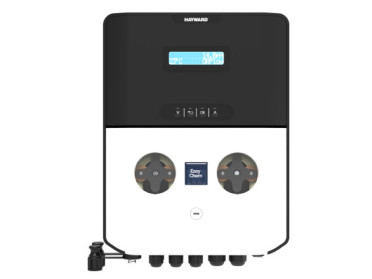
The Advantages of Using Automatic Dosing for Pool Chemicals
Category : Maintenance
Maintaining a swimming pool involves balancing various chemicals to ensure the water is safe, clean, and enjoyable. Automatic dosing systems have revolutionized pool maintenance by providing precise and consistent chemical management.
Here are some key advantages of using automatic dosing systems for pool chemicals:
1. Consistent Water Quality
Automatic dosing systems continuously monitor and adjust chemical levels, ensuring optimal water balance. This consistency helps maintain clear, clean water and prevents issues like algae growth and bacterial contamination By maintaining a stable chemical environment, these systems ensure that your pool water is always inviting and safe for swimmers.
2. Time and Effort Savings
Manual testing and adjusting of pool chemicals can be time-consuming. Automatic systems reduce the need for frequent manual tests and adjustments, allowing pool owners to spend more time enjoying their pool rather than maintaining it. This convenience is especially valuable for busy individuals who want to maximize their leisure time.
3. Enhanced Safety
Maintaining balanced chemical levels is crucial for swimmer safety. Automatic dosing systems help prevent chemical imbalances that can cause skin and eye irritation or other health issues. They ensure proper sanitization by maintaining adequate chlorine levels to kill bacteria and prevent algae growth, providing a safer swimming environment.
4. Cost Efficiency
While the initial investment in an automatic dosing system can be high, the long-term cost savings are significant. These systems optimize chemical usage, preventing wastage and reducing overall chemical costs. Additionally, balanced water chemistry helps extend the life of pool equipment and surfaces, reducing maintenance and repair costs.
5. Environmental Benefits
Automatic dosing systems contribute to environmental sustainability by minimizing chemical usage and waste. Efficient chemical use reduces the risk of harmful chemical runoff into the environment, and many systems are energy-efficient, contributing to overall energy conservation.
6. Remote Monitoring and Control
Many modern automatic dosing systems offer remote monitoring and control capabilities. Pool owners can monitor and adjust chemical levels from their smartphones or tablets, receive real-time alerts if chemical levels deviate from the desired range, and make adjustments even when they are not at home.
Types of Pool Chemical Dosing Systems
Different types of automatic dosing systems are designed to manage specific aspects of pool chemistry. Here’s a breakdown of the main types:
1. pH Dosing Systems
pH dosing systems are essential for maintaining the correct pH balance in your pool water. The pH level measures the acidity or alkalinity of the water, which affects swimmer comfort and the effectiveness of sanitizers. Here’s how they work:
These systems continuously monitor the pH level of the pool water. If the pH level deviates from the ideal range (typically between 7.2 and 7.6), the system automatically adds pH increasers or pH decreasers to bring it back to balance.
2. ORP (Oxidation-Reduction Potential) Dosing Systems
ORP dosing systems measure the water’s ability to oxidize contaminants, which is directly related to the effectiveness of chlorine as a sanitizer. Here’s what you need to know:
ORP systems use probes to measure the ORP level in the pool water. A higher ORP indicates better water quality and more effective disinfection. The system adjusts the chlorine dosing to maintain an optimal ORP level.
3. Rx (Chlorine) Dosing Systems
Chlorine dosing systems are specifically designed to manage chlorine levels in the pool. Chlorine is the primary sanitizer used to kill bacteria, algae, and other microorganisms. Here’s how they function:
These systems continuously monitor the chlorine levels in the pool water. When the chlorine level drops below the desired range, the system automatically adds the necessary amount of chlorine to maintain proper sanitization
It also prevents chlorine overdosing or excess chlorine production with salt chlorinators, protecting bathers and pool equipment and linings.
By understanding the specific functions and benefits of each type of dosing system, pool owners can choose the right system to enhance their pool maintenance routine. These systems not only simplify the process but also ensure a safer, more enjoyable swimming experience.


